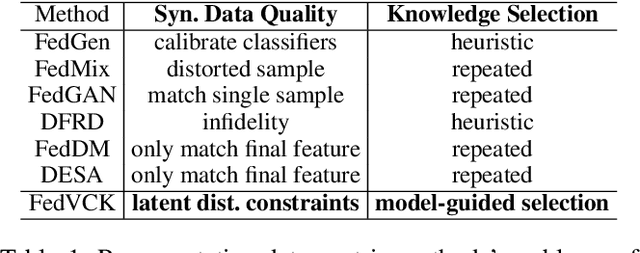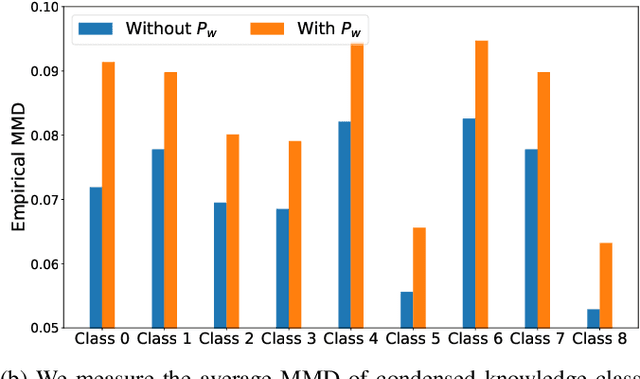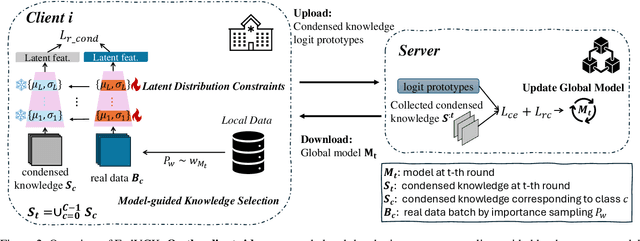Guochen Yan
Exploring Information Seeking Agent Consolidation
Jan 31, 2026Abstract:Information-seeking agents have emerged as a powerful paradigm for solving knowledge-intensive tasks. Existing information-seeking agents are typically specialized for open web, documents, or local knowledge bases, which constrains scalability and cross-domain generalization. In this work, we investigate how to consolidate heterogeneous information-seeking agents into a single foundation agentic model. We study two complementary consolidation strategies: data-level consolidation, which jointly trains a unified model on a mixture of domain-specific datasets, and parameter-level consolidation, which merges independently trained agent models at the parameter level. Our analysis compares these approaches in terms of performance retention, cross-domain generalization, and interference across information-seeking behaviors. Our results show that data-level consolidation remains a strong and stable baseline, while parameter-level consolidation offers a promising, efficient alternative but suffers from interference and robustness challenges. We further identify key design factors for effective agent consolidation at the parameter level, including fine-grained merging granularity, awareness of task heterogeneity, and principled consensus strategy.
RAGShaper: Eliciting Sophisticated Agentic RAG Skills via Automated Data Synthesis
Jan 13, 2026Abstract:Agentic Retrieval-Augmented Generation (RAG) empowers large language models to autonomously plan and retrieve information for complex problem-solving. However, the development of robust agents is hindered by the scarcity of high-quality training data that reflects the noise and complexity of real-world retrieval environments. Conventional manual annotation is unscalable and often fails to capture the dynamic reasoning strategies required to handle retrieval failures. To bridge this gap, we introduce RAGShaper, a novel data synthesis framework designed to automate the construction of RAG tasks and robust agent trajectories. RAGShaper incorporates an InfoCurator to build dense information trees enriched with adversarial distractors spanning Perception and Cognition levels. Furthermore, we propose a constrained navigation strategy that forces a teacher agent to confront these distractors, thereby eliciting trajectories that explicitly demonstrate error correction and noise rejection. Comprehensive experiments confirm that models trained on our synthesized corpus significantly outperform existing baselines, exhibiting superior robustness in noise-intensive and complex retrieval tasks.
DocDancer: Towards Agentic Document-Grounded Information Seeking
Jan 08, 2026Abstract:Document Question Answering (DocQA) focuses on answering questions grounded in given documents, yet existing DocQA agents lack effective tool utilization and largely rely on closed-source models. In this work, we introduce DocDancer, an end-to-end trained open-source Doc agent. We formulate DocQA as an information-seeking problem and propose a tool-driven agent framework that explicitly models document exploration and comprehension. To enable end-to-end training of such agents, we introduce an Exploration-then-Synthesis data synthesis pipeline that addresses the scarcity of high-quality training data for DocQA. Training on the synthesized data, the trained models on two long-context document understanding benchmarks, MMLongBench-Doc and DocBench, show their effectiveness. Further analysis provides valuable insights for the agentic tool design and synthetic data.
FedSRD: Sparsify-Reconstruct-Decompose for Communication-Efficient Federated Large Language Models Fine-Tuning
Oct 06, 2025



Abstract:The current paradigm of training large language models (LLMs) on publicly available Web data is becoming unsustainable, with high-quality data sources in specialized domains nearing exhaustion. Federated Learning (FL) emerges as a practical solution for the next generation of AI on a decentralized Web, enabling privacy-preserving collaborative fine-tuning by leveraging private data distributed across a global client base. While Low-Rank Adaptation (LoRA) is the standard for efficient fine-tuning, its application in federated settings presents a critical challenge: communication overhead remains a significant bottleneck across the Web's heterogeneous network conditions. The structural redundancy within LoRA parameters not only incurs a heavy communication burden but also introduces conflicts when aggregating client updates. To address this, we propose FedSRD, a Sparsify-Reconstruct-Decompose framework designed for communication-efficient FL. We first introduce an importance-aware sparsification method that preserves the structural integrity of LoRA updates to reduce the uploaded parameter count. The server then reconstructs and aggregates these updates in a full-rank space to mitigate conflicts. Finally, it decomposes the global update into a sparse low-rank format for broadcast, ensuring a symmetrically efficient cycle. We also propose an efficient variant, FedSRD-e, to reduce computational overhead. Experimental results on 10 benchmarks demonstrate that our framework significantly reduces communication costs by up to 90\% while even improving model performance on heterogeneous client data.
A Comprehensive Data-centric Overview of Federated Graph Learning
Jul 22, 2025Abstract:In the era of big data applications, Federated Graph Learning (FGL) has emerged as a prominent solution that reconcile the tradeoff between optimizing the collective intelligence between decentralized datasets holders and preserving sensitive information to maximum. Existing FGL surveys have contributed meaningfully but largely focus on integrating Federated Learning (FL) and Graph Machine Learning (GML), resulting in early stage taxonomies that emphasis on methodology and simulated scenarios. Notably, a data centric perspective, which systematically examines FGL methods through the lens of data properties and usage, remains unadapted to reorganize FGL research, yet it is critical to assess how FGL studies manage to tackle data centric constraints to enhance model performances. This survey propose a two-level data centric taxonomy: Data Characteristics, which categorizes studies based on the structural and distributional properties of datasets used in FGL, and Data Utilization, which analyzes the training procedures and techniques employed to overcome key data centric challenges. Each taxonomy level is defined by three orthogonal criteria, each representing a distinct data centric configuration. Beyond taxonomy, this survey examines FGL integration with Pretrained Large Models, showcases realistic applications, and highlights future direction aligned with emerging trends in GML.
dFLMoE: Decentralized Federated Learning via Mixture of Experts for Medical Data Analysis
Mar 13, 2025Abstract:Federated learning has wide applications in the medical field. It enables knowledge sharing among different healthcare institutes while protecting patients' privacy. However, existing federated learning systems are typically centralized, requiring clients to upload client-specific knowledge to a central server for aggregation. This centralized approach would integrate the knowledge from each client into a centralized server, and the knowledge would be already undermined during the centralized integration before it reaches back to each client. Besides, the centralized approach also creates a dependency on the central server, which may affect training stability if the server malfunctions or connections are unstable. To address these issues, we propose a decentralized federated learning framework named dFLMoE. In our framework, clients directly exchange lightweight head models with each other. After exchanging, each client treats both local and received head models as individual experts, and utilizes a client-specific Mixture of Experts (MoE) approach to make collective decisions. This design not only reduces the knowledge damage with client-specific aggregations but also removes the dependency on the central server to enhance the robustness of the framework. We validate our framework on multiple medical tasks, demonstrating that our method evidently outperforms state-of-the-art approaches under both model homogeneity and heterogeneity settings.
FedVCK: Non-IID Robust and Communication-Efficient Federated Learning via Valuable Condensed Knowledge for Medical Image Analysis
Dec 24, 2024



Abstract:Federated learning has become a promising solution for collaboration among medical institutions. However, data owned by each institution would be highly heterogeneous and the distribution is always non-independent and identical distribution (non-IID), resulting in client drift and unsatisfactory performance. Despite existing federated learning methods attempting to solve the non-IID problems, they still show marginal advantages but rely on frequent communication which would incur high costs and privacy concerns. In this paper, we propose a novel federated learning method: \textbf{Fed}erated learning via \textbf{V}aluable \textbf{C}ondensed \textbf{K}nowledge (FedVCK). We enhance the quality of condensed knowledge and select the most necessary knowledge guided by models, to tackle the non-IID problem within limited communication budgets effectively. Specifically, on the client side, we condense the knowledge of each client into a small dataset and further enhance the condensation procedure with latent distribution constraints, facilitating the effective capture of high-quality knowledge. During each round, we specifically target and condense knowledge that has not been assimilated by the current model, thereby preventing unnecessary repetition of homogeneous knowledge and minimizing the frequency of communications required. On the server side, we propose relational supervised contrastive learning to provide more supervision signals to aid the global model updating. Comprehensive experiments across various medical tasks show that FedVCK can outperform state-of-the-art methods, demonstrating that it's non-IID robust and communication-efficient.
Toward Personalized Federated Node Classification in One-shot Communication
Nov 18, 2024



Abstract:Federated Graph Learning (FGL) has become a promising paradigm for collaborative training with distributed and private graph data. One-shot Federated Learning (OFL) enables collaboration in a single communication round to largely reduce communication costs and potential security concerns. However, existing OFL methods are not designed for graph data and existing FGL methods are ineffective within one communication round under both data and model heterogeneity. To mitigate this gap, we are the first to propose a one-shot personalized federated graph learning method for node classification, which is also compatible with the Secure Aggregation scheme. We estimate and aggregate the statistics of class-wise feature distribution to generate a global pseudo-graph on the server, which could be used to train a global graph model. Furthermore, We reveal the under-explored problem of existing personalized FGL methods that their personalized models are biased and neglect the ability to generalize to minorities. To achieve better personalization and generalization simultaneously, we propose a two-stage personalized training to adaptively utilize the personal information from local data and global information from the global pseudo-graph. Comprehensive experiments on 8 multi-scale graph datasets under different partitions with various settings demonstrate our superior performance over state-of-the-art baselines.
OpenFGL: A Comprehensive Benchmarks for Federated Graph Learning
Aug 29, 2024Abstract:Federated graph learning (FGL) has emerged as a promising distributed training paradigm for graph neural networks across multiple local systems without direct data sharing. This approach is particularly beneficial in privacy-sensitive scenarios and offers a new perspective on addressing scalability challenges in large-scale graph learning. Despite the proliferation of FGL, the diverse motivations from practical applications, spanning various research backgrounds and experimental settings, pose a significant challenge to fair evaluation. To fill this gap, we propose OpenFGL, a unified benchmark designed for the primary FGL scenarios: Graph-FL and Subgraph-FL. Specifically, OpenFGL includes 38 graph datasets from 16 application domains, 8 federated data simulation strategies that emphasize graph properties, and 5 graph-based downstream tasks. Additionally, it offers 18 recently proposed SOTA FGL algorithms through a user-friendly API, enabling a thorough comparison and comprehensive evaluation of their effectiveness, robustness, and efficiency. Empirical results demonstrate the ability of FGL while also revealing its potential limitations, offering valuable insights for future exploration in this thriving field.
 Add to Chrome
Add to Chrome Add to Firefox
Add to Firefox Add to Edge
Add to Edge